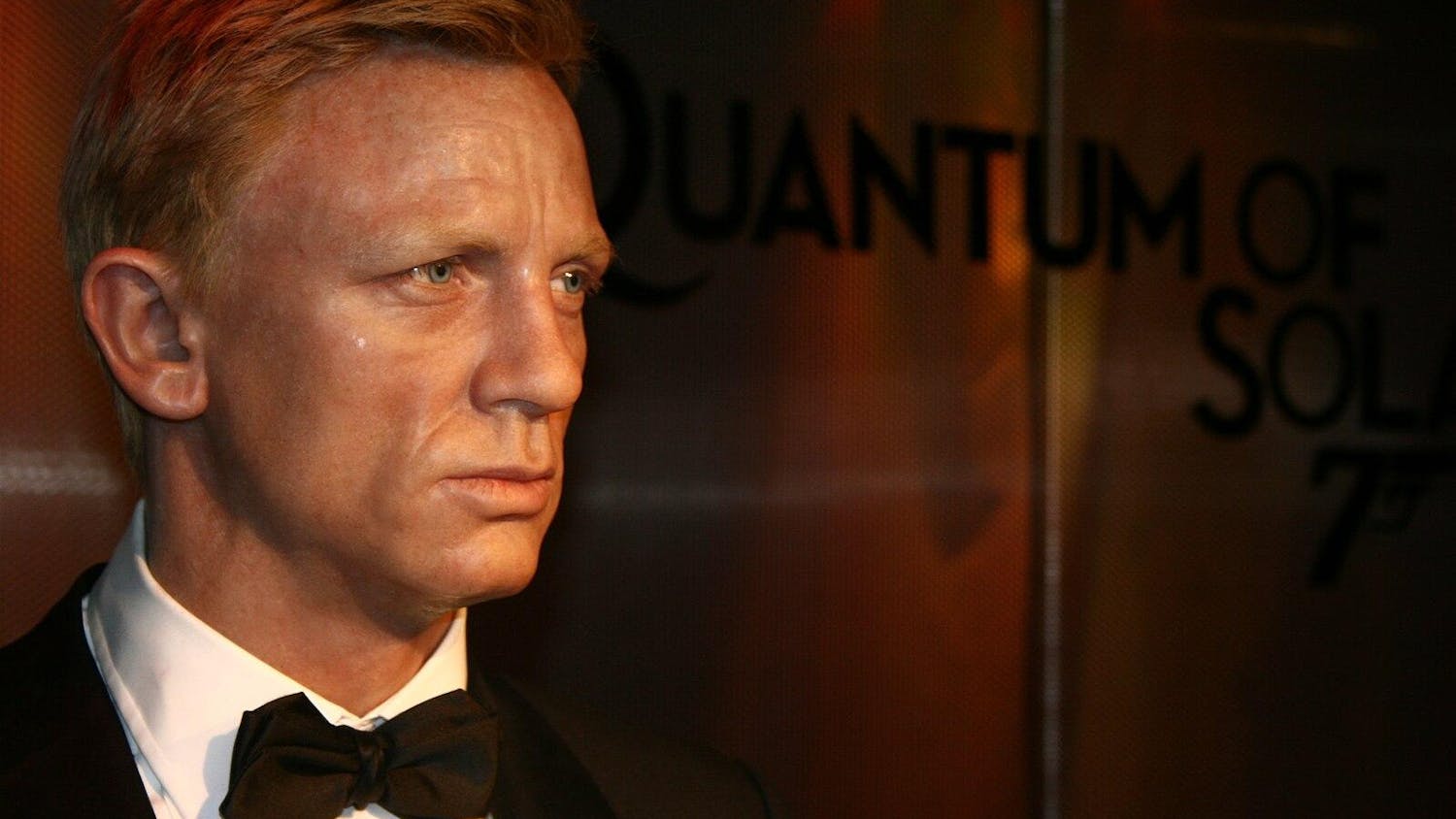There are many reasons to be afraid of My Chemical Romance: they're pale, they wear black, they love blood, they're from New Jersey. But rock fans across the nation now warmly embrace them as the up-from-the-underground sensation that took the world by surprise with its smash 2004 release "Three Cheers for Sweet Revenge."
By now the boys in MCR must know that revenge is indeed very sweet, having become megastars by rallying behind the Dungeons-and-Dragons-playing counter-culture of the modern age and writing songs for their 2004 album with titles like "I'm Not Okay (I Promise)" and "You Know What They Do To Guys Like Us In Prison." My Chemical Romance exists as an attempt to reclaim their lunch money from every playground bully and to prove that for once the pen is mightier than the varsity jacket.
That said, it was difficult for anyone who listened to the first record to hope that the band's sophomore major record label release would be nearly as good as "Three Cheers," which earned itself a place in the rock hall of fame. With "The Black Parade," MCR cements its place among the decade's elite.
The first single, fittingly titled "Welcome to The Black Parade," which opens with the lines, "Son when you grow up/ Will you be the savior of the broken/ the beaten and the damned," lyrics that immediately declare that this record is about redemption more than revenge. The melody begins with a marching band rhythm, only to bounce into a pop-punk chorus that is at home atop the charts, and then, with a twist, the song ends in a guitar-led, soloistic finale in the ornate style of Queen.
The album itself starts with a track called "The End.," a prologue to the album more than a song, with front man Gerard Way informing the listener, "When I grow up I want to be nothing at all." This piece leads directly into the second track, "Dead!," in the style of "Three Cheers for Sweet Revenge" with harmonized guitar solos and a fast, pounding drum beat provided by Bob Bryar, who makes his first appearance with the band on this album.
Perhaps the biggest difference between "The Black Parade" and "Three Cheers" lays in the production. The new album, produced by Rob Cavallo, who worked on Green Day's "American Idiot" (2004), has an overall cleaner, more radio-friendly sound, whereas the band's debut, produced by Hatebreed producer Howard Benson, is a sloppier but more energetic and lively experience.
After one listen, one can sing along with the melodies in "The Black Parade," which makes the album more accessible and memorable. At the same time, it's almost a shame not to have to make the effort to appreciate the twisting tracks, as the listener had to do for "Three Cheers."
It is best to view My Chemical Romance's first album as a cathartic release of demons, while the follow up is a response to the proverbial siren song of today's counter-culture movement. The band today would seem to want to lead the youngsters of the next generation to embrace their young and restless habits, as demonstrated in the tune "Teenagers," when Way sings, "They say 'all teenagers scare the living s-t outta me/ they could care less as long as someone will bleed.'" Way's tortured growl reminds all of us under the age of twenty that it is our god-given right to remind those older than us why we're so much cooler than they are.
Whether or not this album will go down in history as being the "Sgt. Pepper's" of My Chemical Romance's recording history has yet to be determined, and the choice of where to go next will be an even bigger decision for the band. It would be wrong to say this is the "new" My Chemical Romance, because if the band wants to stick around, it will have to reinvent itself many times over.





